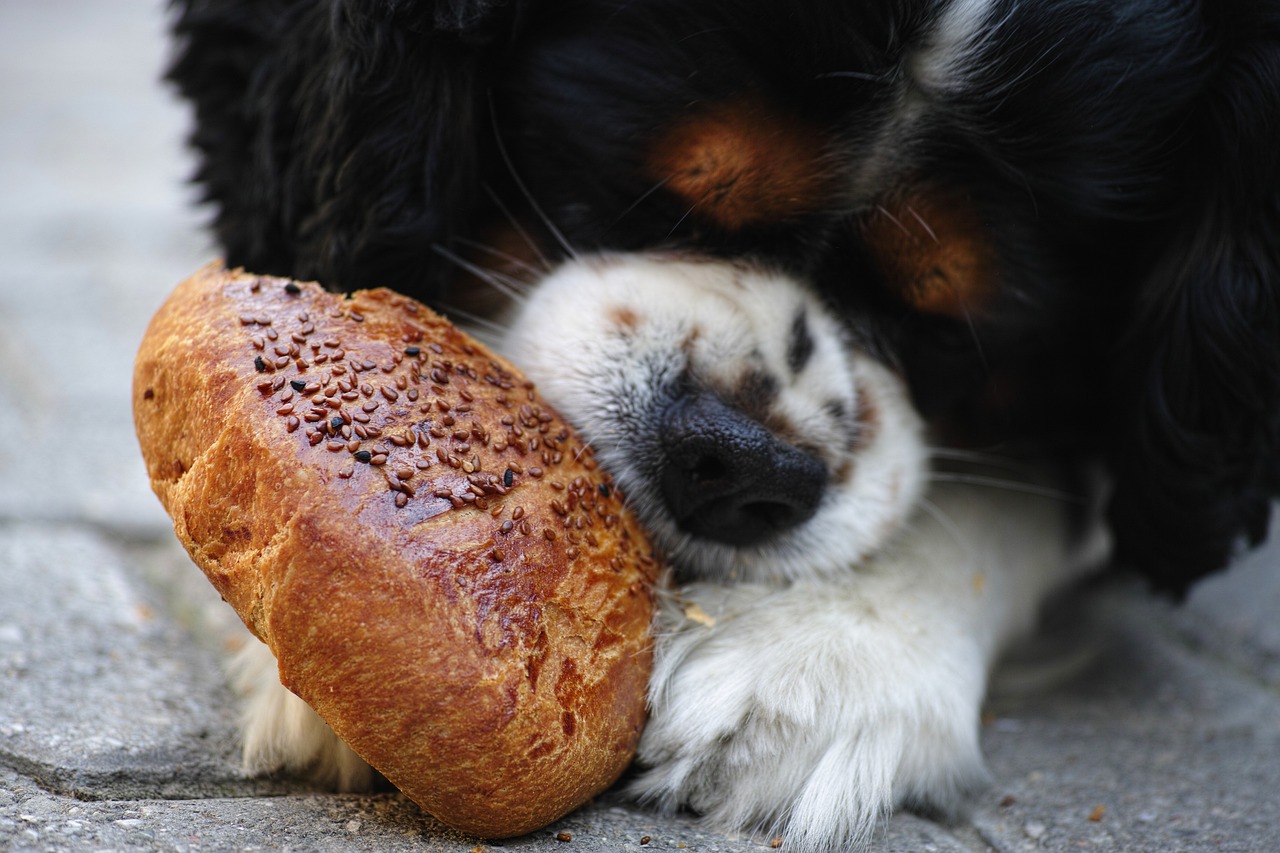A balanced diet plays a crucial role in maintaining the good health of your canine friend. By incorporating low-fat dog food, bones, and fruits into your dog’s diet, you can provide him with the necessary nutrients to protect him from obesity and heart diseases.
Low-fat dog food is a great way to ensure your dog’s weight is under control. Look for food with low-fat content and high in protein for your furry companion. This type of food will help him build and maintain strong muscles and a healthy immune system.
Bones are not only delicious treats for dogs, but they can also help strengthen the jaw muscles and remove plaque from teeth. However, it’s essential to choose the right type of bone according to the size and chewing capacity of your dog. Raw bones are preferable to cooked ones, which can splinter and cause harm to your dog’s digestive system.
When offering bones as a treat, it is vital not to overfeed your dog with them. Bones should also never be a substitute for food as they contain limited nutritional value. Over-chewing can cause dental problems and even fractures in your dog’s teeth.
Fruits are another excellent source of nutrients for dogs. Some low-sugar and fiber-rich fruits like apples, blueberries, and bananas can be healthy and tasty snacks for your dog. But be careful, some fruits like grapes, raisins, and citrus fruits are toxic and should always be avoided. Fruits with pits or seeds can also lead to choking hazards or digestive issues.
Low Fat Dog Food
When it comes to maintaining your dog’s health, their diet plays a crucial role. Low-fat dog food is an excellent choice to help prevent obesity and heart disease in dogs. It’s important to look for dog food that is not only low in fat but also high in protein. This kind of food will ensure that your dog receives all the necessary nutrients and helps maintain their overall health.
There is a wide variety of low-fat dog food available in the market, and you can choose the one that suits your dog’s size, breed, and nutritional requirements. You can also consult your veterinarian to help you select the right food, especially if your dog has any medical conditions or special needs.
Remember, maintaining proper nutrition is key to keeping your furry friend happy and healthy. So, always prioritize their diet and choose the best possible food options for them.
Bones for Dogs
Bones are a great addition to your dog’s diet as they can help improve their oral health and keep their jaw muscles strong. By chewing on bones, dogs can remove plaque and tartar buildup from their teeth, reducing the risk of dental diseases. However, it’s crucial to select the right type of bone for your dog’s size and chewing capacity.
Large breeds may be able to handle larger bones, but smaller dogs require smaller bones that they can easily chew without risking any harm. It’s also essential to choose bones that are safe for your dog and won’t splinter or break into sharp pieces. Raw bones are preferred over cooked bones, which can be dangerous for dogs and cause choking hazards.
While bones can provide several benefits, it’s essential to monitor your dog’s chewing habits and behavior since excessive chewing can lead to dental problems or fractures. It’s also vital to never substitute bones for regular food, as they don’t provide any nutritional value.
Types of Bones
When it comes to giving bones to your furry friend, raw bones are the way to go. Cooked bones can splinter easily and cause harm to your dog’s digestive system. Additionally, raw bones can help promote dental health by removing plaque and strengthening their jaw muscles.
It’s important to select the correct size bone for your dog’s breed. Large breeds can handle larger bones, while smaller breeds require smaller ones. Providing the right size bone can also prevent choking hazards.
However, it’s important to note that bones shouldn’t become a substitute for food. They lack nutritional value and shouldn’t make up a large portion of your dog’s diet. If you’re unsure about giving bones to your dog, consult with your veterinarian to determine the best approach.
Problems with Bones
Despite the benefits, bones can also pose some problems for dogs. Chewing on bones too often or too hard can cause dental issues such as broken teeth, fractured jaws, and wear on tooth enamel. It is important to monitor your dog’s chewing habits and limit their access to bones if necessary.
Additionally, bones should never be given to your dog as a substitute for food, as they lack the necessary nutritional value. While bones can be a great treat for your dog, they should only be given in moderation and as part of a balanced diet.
Fruits for Dogs
When it comes to incorporating fruits into your dog’s diet, it’s important to know which ones are safe and beneficial for them. Fruits that are low in sugar and high in fiber are the best options for your furry friend. Apples, blueberries, and bananas are all great choices that provide essential nutrients and vitamins for your dog’s overall health.
However, it’s important to note that not all fruits are safe for dogs to consume. Fruits such as grapes, raisins, and citrus fruits can be harmful and even toxic to your pet. Additionally, fruits with pits or seeds can pose a choking hazard or cause digestive problems.
To ensure that your dog is receiving the proper nutrition, it’s important to consult with your veterinarian and develop a balanced diet plan that incorporates fruits and other healthy foods. By doing so, you can help your furry friend live a long and happy life.
Fruits to Avoid
While fruits can be a healthy and tasty snack for dogs, not all fruits are safe for them to eat. In fact, some fruits can be toxic and even deadly for dogs. Fruits to avoid include grapes, raisins, and citrus fruits, which can cause kidney failure and other serious health issues in dogs. Even a small amount of grapes or raisins can be toxic to some dogs and can lead to vomiting, diarrhea, and lethargy.
Additionally, fruits with pits or seeds can cause choking hazards or digestive problems. Dogs should not eat fruits such as cherries, peaches, plums, or apricots. These fruits contain pits that can be swallowed whole or cracked open by strong jaw muscles, causing a choking hazard. If swallowed, the pits can cause blockages in the digestive tract, leading to stomach pain and vomiting.
If you suspect that your dog has ingested any of these fruits, it is important to seek veterinary care immediately. In some cases, prompt treatment can save a dog’s life. To prevent your dog from ingesting dangerous fruits, it is best to stick to fruits that are safe for them to eat, such as apples, blueberries, and bananas, and always supervise them while they are eating.


